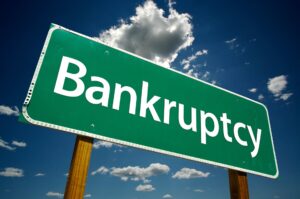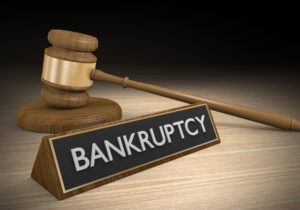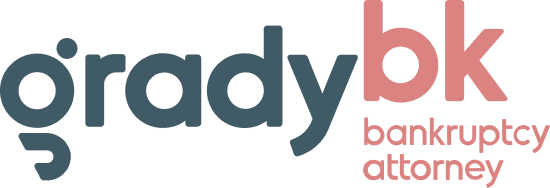At Grady BK, PLLC, we understand that the decision to file for Chapter 7 bankruptcy is an important one. It’s often a choice made after careful thought and consideration and when other avenues for debt relief haven’t worked.
Chapter 7 bankruptcy is for people who have more debt than their income can cover and are, therefore, struggling to make ends meet due to their debt. If you’re thinking about filing for Chapter 7 bankruptcy because of your debt, you probably have enough debt to qualify. There’s no set amount of debt you need to have to qualify for bankruptcy. What matters more is how much money you earn. Your income is the biggest factor in deciding if you can file for Chapter 7 bankruptcy.
This guide should help you understand the basics of Chapter 7 bankruptcy in New York, but for personalized support unique to your specific situation, call our office today.
Understanding the Basics Chapter 7 Bankruptcy
Chapter 7 bankruptcy is a type that helps you get rid of most debts that aren’t tied to any assets, like credit card debts, personal loans, and medical bills. People often call it “straight bankruptcy.” It’s meant to give you a new start by clearing your debts. It is, however, important to think about if it’s the best choice for you.
Each person’s financial situation is different, so what works for someone else might not be the best for you. It’s all about figuring out if Chapter 7 bankruptcy fits your unique financial needs.
How to Qualify for Chapter 7 Bankruptcy
To find out if you can file for Chapter 7 bankruptcy in New York, you need to pass what’s called the means test. This test looks at your income and compares it with the average income for a family the same size as yours in New York. If you earn less than this average, you probably qualify for Chapter 7. If you earn more, you might still be able to file for Chapter 7, but you’ll need to do some extra math.
This involves figuring out how much money you have left after paying for essentials and looking at your other financial responsibilities. This extra step helps to see if you have enough leftover income to pay off some of your debts without going through Chapter 7 bankruptcy.
What’s the Means Test Limits?
In New York, to qualify for Chapter 7 bankruptcy under the means test, your annual income needs to be below $66,402 for a single-person household, $84,089 for two people, $101,266 for three, and $126,194 for a family of four. For households larger than four, you would add $9,900 for each additional member. Also, the means test limits are updated (can go up or down) every six months.
It’s important to mention that not all types of income are included in the means test. For instance, VA disability and social security incomes are not counted. The means test considers several income types, like your salary, spousal income, hourly and overtime income, and more.
Gathering Your Information for Chapter 7 Bankruptcy
When getting ready for Chapter 7 bankruptcy, you’ll need to put together some important paperwork. This includes details about the money you earn, any big financial moves you’ve made in the last two years, your monthly bills, how much you owe, and a list of assets you own. It’s important to be honest and accurate with this information because it lays the groundwork for your entire bankruptcy case. Think of it like gathering pieces of a puzzle to give a clear picture of your financial situation.
What Happens When You File for Chapter 7 Bankruptcy
When you file for bankruptcy, there’s a rule called an automatic stay that starts right away. This rule stops your creditors from trying to get their money back by bothering or harassing you.
This means they can no longer call or send you letters requesting payment. They can not sue you or try to collect on the debt at all. It’s an automatic alert that tells them you are rethinking your finances, and they’ll be contacted about your situation when you and your bankruptcy attorney are ready.
Keeping Your Things Safe in Chapter 7 Bankruptcy
If you’re in New York and filing for bankruptcy, there are certain exemptions that help you keep your most important assets, like your house, your car, and your personal property. These laws are there to make sure you don’t lose your property when you file for bankruptcy. The court knows you can’t continue to make a living without your house or car, and they want you to succeed after bankruptcy. Remember, bankruptcy is about getting out of debt, not starting your life over from scratch.
How Bankruptcy Affects Your Credit Score
Filing for bankruptcy will change your credit score. In the beginning, it will go down. The chapter 7 bankruptcy stays on your credit history for 10 years. But it’s not all bad. Any negative reporting on your credit report because of late payments or collection activity immediately stops when the bankruptcy is filed (no more dings to your credit report). You will start to rebuild your credit within a month after the bankruptcy is over (we will give you information on how to do this). Bankruptcy lets you start over by getting rid of many of your debts. This way, you can work on building a better financial future without those debts weighing you down.
What Debts Can Be Cleared?
In a Chapter 7 bankruptcy, you can get rid of many of your unsecured debts, which can be a huge relief and lead to a better outlook on life. However, not all debts can be cleared this way. Debts like child support, alimony, and most taxes will still need to be paid. Knowing which debts can and can’t be cleared helps you plan better for the future.
We’re Here to Help
At Grady BK, PLLC, we understand how challenging and scary bankruptcy can be. We’re ready to guide and support you through every step of it.




